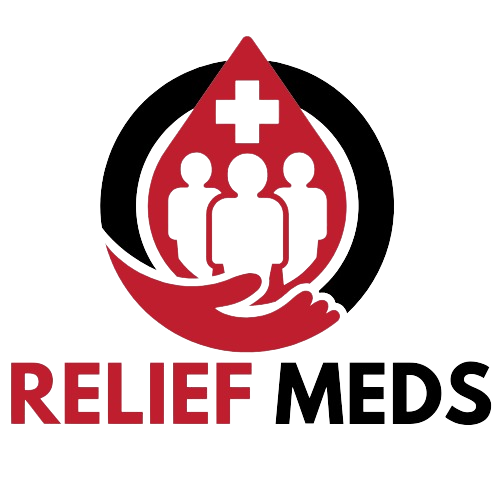Understanding Mexican Pharmaceutical Regulations
The landscape of pharmaceutical regulations in Mexico is a unique blend of modern practices and traditional approaches. For those interested in purchasing medications from Mexican online pharmacies, or for anyone looking to understand the country’s pharmaceutical industry, this article provides a comprehensive overview of the regulatory environment in Mexico.
The Regulatory Body: COFEPRIS
The key authority overseeing pharmaceutical regulations in Mexico is the Federal Commission for the Protection against Sanitary Risk (COFEPRIS). Established as a decentralized organ of the Ministry of Health, COFEPRIS is responsible for enforcing national health regulations, issuing sanitary licenses, and monitoring the safety, efficacy, and quality of medications. Their role is akin to the FDA in the United States or the EMA in the European Union.
%2C%20the%20Mexican%20health_2.png)
Licensing and Approvals
All pharmaceutical products in Mexico must be registered with COFEPRIS before they can be legally sold. This registration process involves a thorough review of the product’s safety, efficacy, and manufacturing processes. COFEPRIS also inspects manufacturing facilities to ensure they comply with Good Manufacturing Practices (GMP).
Importation and Exportation
For medications coming into Mexico, COFEPRIS strictly monitors importation. Medications must meet Mexican regulatory standards, and any foreign pharmaceutical company must have a legal representative in Mexico. For exportation, Mexican pharmaceutical products must comply with the regulations of the destination country, and COFEPRIS plays a crucial role in facilitating these international transactions.
Prescription and Over-the-Counter Medications
Absolutely, the distinction between prescription and over-the-counter medications in Mexico is a critical aspect of its pharmaceutical regulations, which can sometimes be different from practices in other countries. Here’s a more detailed look at this aspect:
Prescription Medications (Rx)
In Mexico, prescription medications are regulated carefully. These are drugs that, due to their potency, potential side effects, or risk of misuse, require oversight by a healthcare professional. To purchase a prescription medication, one must have a valid prescription issued by a licensed healthcare provider in Mexico. This process ensures that the use of these medications is appropriate, safe, and tailored to the individual’s specific health needs.
Over-the-Counter Medications (OTC)
Over-the-counter medications, in contrast, are those deemed safe and effective for use by the general public without needing a prescription. These drugs typically treat common, minor health issues and have a lower risk of abuse or serious side effects. In Mexico, OTC medications can be easily purchased in pharmacies without a prescription.
Differences from Other Countries
An interesting point to note is that the classification of drugs as either prescription or OTC can vary from country to country. A medication readily available over the counter in the United States or Europe, for example, might still require a prescription in Mexico. This variance is due to differences in each country’s medical standards, cultural practices, and regulatory frameworks.
Importance for Consumers
For consumers, especially those from other countries, this distinction is crucial. It’s important to be aware that even if a medication does not require a prescription in your home country, it might not be the same in Mexico. This awareness is particularly important for tourists or individuals looking to purchase medications from Mexican online pharmacies.
Role of Online Pharmacies
Reputable online pharmacies in Mexico are well-versed in these regulations. They can guide customers regarding which medications require a prescription and help ensure that all legal and safety protocols are followed. However, it is the responsibility of the consumer to ensure that they are complying with both Mexican regulations and the regulations of their home country when purchasing medications abroad.
The clear distinction between Rx and OTC medications in Mexico underscores the country’s commitment to patient safety and proper medication use. Understanding and respecting these regulations is key for anyone looking to purchase medications within Mexico, whether in person or through an online platform.
Online Pharmacies and Telemedicine
With the rise of telemedicine and online pharmacies, COFEPRIS has been adapting its regulations to ensure safety in these new platforms. Online pharmacies in Mexico are required to have a physical pharmacy license and must adhere to the same standards as brick-and-mortar pharmacies. They are also subject to inspections and audits to ensure compliance with pharmaceutical regulations.
Counterfeit Medications and Enforcement
One of the major challenges in the Mexican pharmaceutical sector is the presence of counterfeit medications. COFEPRIS actively combats this issue through rigorous enforcement and public awareness campaigns. Consumers are advised to purchase medications from reputable sources and to look for COFEPRIS approval seals on products.
Pharmaceutical Innovations and Patents
Mexico is increasingly becoming a hub for pharmaceutical innovation. The country has a robust framework for the protection of pharmaceutical patents, encouraging research and development. COFEPRIS plays a pivotal role in ensuring that new drugs entering the market are not only innovative but also safe and effective for the population.
Navigating the pharmaceutical regulations in Mexico requires an understanding of COFEPRIS’s role and the country’s specific rules regarding drug approval, prescription requirements, and online pharmacy operations. For consumers outside of Mexico looking to purchase medications from Mexican online pharmacies, it’s crucial to ensure that these pharmacies are COFEPRIS-compliant and uphold the highest standards of quality and safety. As the pharmaceutical landscape continues to evolve, so too will the regulations, maintaining Mexico’s commitment to safe and effective medication access for all.
